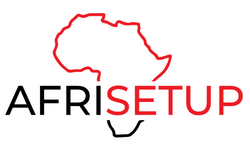- By afrisetupconsultants
- Uncategorized
- 0 Comment

Starting a hardware business in Uganda can be a promising venture given the country’s growing economy and the increasing demand for construction and infrastructure development. Uganda, located in East Africa, is characterized by a burgeoning population, urbanization, and a growing middle class. This creates a significant market for hardware products, ranging from construction materials to household tools.
- Before we dive deep into starting a hardware business in Uganda, it is important to note that Afrisetup is here to guide you through the entire process, starting from registering your company in Uganda to offering accounting services for your business. Feel free to contact us
Steps to starting a hardware business in Uganda
Starting a hardware business in Uganda can be a promising venture given the country’s growing construction and infrastructure development.
Here’s a step-by-step guide to help you start a hardware business in Uganda:
- Market Research: Begin by conducting thorough market research to understand the demand for hardware products in Uganda. Identify your target market, competitors, and potential suppliers.
- Business Plan: Develop a comprehensive business plan outlining your objectives, target market, product offerings, pricing strategy, marketing plan, and financial projections. This plan will serve as a roadmap for your business.
- Legal Requirements: Register your business with URSB. Obtain all necessary licenses and permits to operate legally. This may include a trade license, tax registration, and any other permits required for importing or selling hardware products.
- Location: Choose a strategic location for your hardware store, preferably in an area with high foot traffic or close proximity to construction sites. Ensure that the location is easily accessible to your target customers.
- Supplier Selection: Identify reliable suppliers for your hardware products. Establish relationships with wholesalers or manufacturers who can provide quality products at competitive prices. Consider factors such as product quality, pricing, and reliability when selecting suppliers.
- Inventory Management: Set up an efficient inventory management system to track stock levels, manage orders, and minimize losses due to theft or damage. Keep a diverse range of hardware products in stock to meet the varying needs of your customers.
- Marketing and Promotion: Develop a marketing strategy to promote your hardware business. Utilize both online and offline channels such as social media, local newspapers, flyers, and signage to reach your target audience. Offer promotions, discounts, or loyalty programs to attract customers.
- Customer Service: Provide excellent customer service to build trust and loyalty with your customers. Train your staff to assist customers effectively, answer their queries, and provide product recommendations. Consider offering delivery services to enhance convenience for your customers.
- Financial Management: Keep track of your finances diligently to ensure the profitability of your hardware business. Monitor expenses, sales, and cash flow regularly. Invest in accounting software to streamline financial management tasks.
- Adaptability and Growth: Stay updated with industry trends and adapt your business accordingly. Explore opportunities for diversification or expansion as your hardware business grows.
N/B ~ At Afrisetup, we follow these steps when helping our clients establish their presence in Uganda. With our assistance, starting a hardware business in Uganda is hassle-free from the comfort of your home.
Hardware Companies in Uganda.
Here are some hardware companies in Uganda that you can look up to when starting a hardware business in Uganda:
- Discount general hardware
- Nakasero Hardware stores
- Dembe Hardware
- Cheap General Hardware
- London Gate Hardware
- Able Hardware shop
- Besigwa Hardware
- Bweyinda Hardware Ltd
- Marko Generak Hardware
Hardware Business Plan in Uganda.
Creating a comprehensive business plan is important for starting a hardware business in Uganda because it can help increase the likelihood of success for your venture in the country.
Here’s a guide:
- Market Research:
- Identify the demand for hardware products in Uganda. Understand the preferences of consumers, including residential, commercial, and industrial sectors.
- Analyze your competitors, including other hardware stores, suppliers, and online retailers. Determine their pricing strategies, product offerings, and target markets.
- Define Your Business Concept:
- Clearly define the products and services you will offer. This may include construction materials, tools, equipment rentals, and repair services.
- Determine your unique selling proposition (USP) that sets your hardware store apart from competitors. This could be competitive pricing, exceptional customer service, or specialized product offerings.
- Legal and Regulatory Compliance:
- Register your business with the appropriate authorities in Uganda, such as the Uganda Registration Services Bureau (URSB).
- Obtain any necessary licenses and permits required to operate a hardware business.
- Ensure compliance with taxation laws and regulations.
- Financial Planning:
- Develop a detailed financial plan, including startup costs, operating expenses, and projected revenues.
- Secure funding through personal savings, loans, or investors if necessary.
- Create a budget for purchasing inventory, leasing or buying a storefront, hiring staff, and marketing.
- Location and Store Setup:
- Choose a strategic location for your hardware store with high visibility and easy accessibility.
- Design the layout of your store to optimize space and display products effectively.
- Invest in quality shelving, displays, and signage to attract customers and enhance the shopping experience.
- Supplier Partnerships:
- Establish relationships with reliable suppliers and wholesalers of hardware products.
- Negotiate favorable terms for pricing, delivery, and payment terms to maintain competitive prices and adequate inventory levels.
- Marketing and Promotion:
- Develop a marketing strategy to attract customers to your hardware store. This may include advertising in local newspapers, radio, and online platforms.
- Utilize social media platforms and create a website to showcase your products and services.
- Offer promotions, discounts, and loyalty programs to incentivize repeat business and customer referrals.
- Staffing and Training:
- Hire knowledgeable and friendly staff who can assist customers with product inquiries and provide excellent customer service.
- Provide training to employees on product knowledge, customer service skills, and safety protocols.
- Operations and Inventory Management:
- Implement efficient inventory management systems to track stock levels, reorder products, and minimize shrinkage.
- Ensure smooth operations by maintaining adequate staffing levels, managing cash flow, and addressing any operational issues promptly.
- Monitor and Adapt:
- Continuously monitor the performance of your hardware business and adjust your strategies as needed.
- Solicit feedback from customers to identify areas for improvement and address any concerns or complaints promptly.
- Stay informed about industry trends, market changes, and new technologies to remain competitive in the hardware market.
Top selling hardware items in Uganda
Before starting a hardware business in Uganda, it is important to keep in mind the top-selling hardware items in the country so that you can consider them when preparing to open your store. Below are some of them:
- Cement – Essential for construction, cement is a key material for building structures and infrastructure projects.
- Steel and Iron Products – Reinforcement bars, roofing sheets, and other steel products are crucial components in construction.
- Bricks and Blocks – Bricks and concrete blocks are fundamental building materials used in both residential and commercial construction.
- Roofing Materials – Corrugated iron sheets, roofing tiles, and other roofing materials are in demand for housing and commercial structures.
- Plumbing Supplies – Pipes, fittings, faucets, and other plumbing materials are needed for construction and maintenance.
- Electrical Components – Wiring, switches, sockets, and other electrical supplies are essential for both residential and commercial electrical installations.
- Paint and Coatings – Interior and exterior paints, as well as coatings, are popular for construction and home improvement projects.
- Hand Tools – Basic hand tools such as hammers, screwdrivers, pliers, and tape measures are in constant demand.
- Power Tools – Electric drills, saws, grinders, and other power tools are sought after by professionals and DIY enthusiasts.
- Fasteners – Nails, screws, bolts, and other fasteners are necessary for various construction applications.
- Doors and Windows – Wooden and metal doors, as well as windows, are essential components for building structures.
- Sanitary Ware – Toilets, sinks, showers, and other bathroom fixtures are crucial for residential and commercial construction.
- Construction Adhesives and Sealants – Adhesives and sealants for bonding and sealing purposes are commonly used in construction.
- Safety Equipment – Safety gear such as helmets, gloves, and safety boots are essential for construction workers.
- Lighting Fixtures – Interior and exterior lighting fixtures, bulbs, and LEDs are necessary for residential and commercial spaces.
The types of businesses that operate in the hardware and construction sector in the country.
As you consider starting a hardware business in Uganda, here are some types of businesses that operate in the hardware and construction sector in Uganda that might be of interest:
- Building Materials Suppliers – Companies that supply a wide range of construction materials, including cement, steel, bricks, roofing materials, and other building components.
- Hardware Stores – Retailers that offer a variety of hardware products such as tools, plumbing supplies, electrical components, paint, and other construction-related items.
- Construction Equipment Suppliers – Businesses providing construction machinery, equipment, and tools for rental or purchase.
- Architectural and Design Firms – Companies involved in architectural design, engineering, and project planning.
- Home Improvement and Furnishing Stores – Retailers specializing in home improvement products, furniture, and interior design items.
- Electrical and Lighting Suppliers – Companies supplying electrical components, wiring, lighting fixtures, and related products.
- Plumbing and Sanitary Ware Suppliers – Businesses that focus on plumbing materials, sanitary ware, and bathroom fixtures.
- Paint and Coating Manufacturers – Companies producing paints, coatings, and related products for both residential and commercial use.
- Construction and Contracting Firms – Companies involved in construction projects, including residential, commercial, and infrastructure development.
- Security and Safety Equipment Suppliers – Businesses offering security systems, safety equipment, and protective gear for construction sites.
FAQs
- How much does it cost to start a hardware store in Uganda? | Cost of starting a hardware? The cost of starting a hardware store in Uganda can vary depending on several factors. For accurate pricing, please do not hesitate to contact us.
- How do I run a successful hardware business in Uganda? Running a successful hardware business in Uganda, or anywhere else, involves careful planning, strategic decision-making, and a customer-focused approach.
- Is a hardware a profitable business in Uganda? If you are considering starting a hardware business in Uganda, you should know that the profitability of a hardware business in Uganda, or any other location, depends on various factors such as:
- Growing Construction Sector: If there is sustained growth in the construction and infrastructure development sector, there will likely be a consistent demand for hardware products.
- Rising Middle Class: An expanding middle class with increasing disposable income may lead to higher spending on home improvement and construction-related products.
- Urbanization: As urbanization continues, there may be a higher demand for construction materials and hardware products in urban areas.
- Infrastructure Projects: Government-led infrastructure projects can significantly boost the demand for hardware products.
- Effective Marketing and Customer Service: Building a strong brand, implementing effective marketing strategies, and providing excellent customer service can contribute to customer loyalty and increased sales.
Conclusion
Starting a hardware business in Uganda offers immense potential for entrepreneurs seeking to capitalize on the country’s burgeoning construction and infrastructure development sectors. By following the comprehensive guide outlined above and leveraging the insights and strategies provided, you can embark on this entrepreneurial journey with confidence and position your hardware business for long-term success in Uganda’s thriving market. Contact us to begin!

